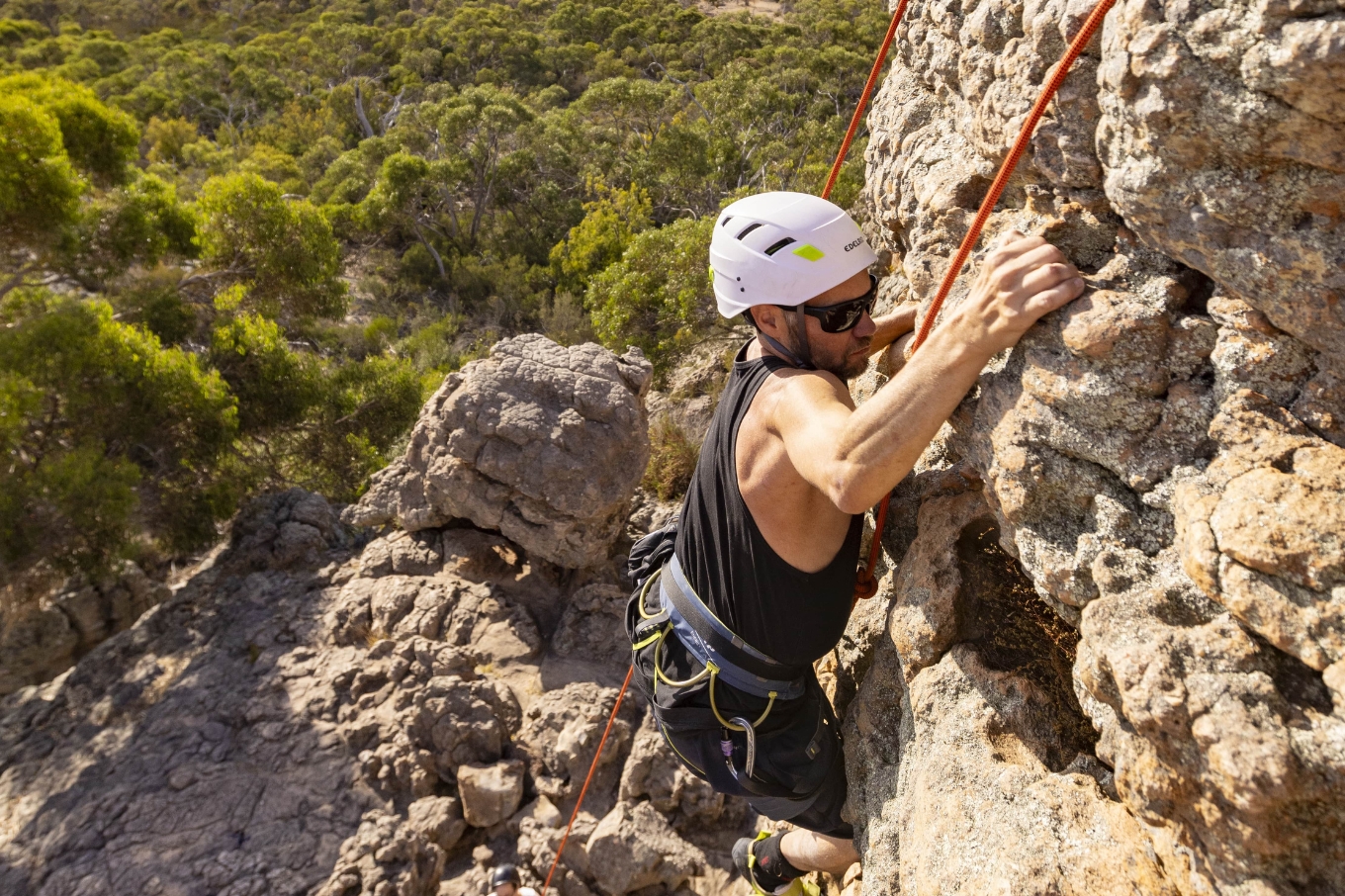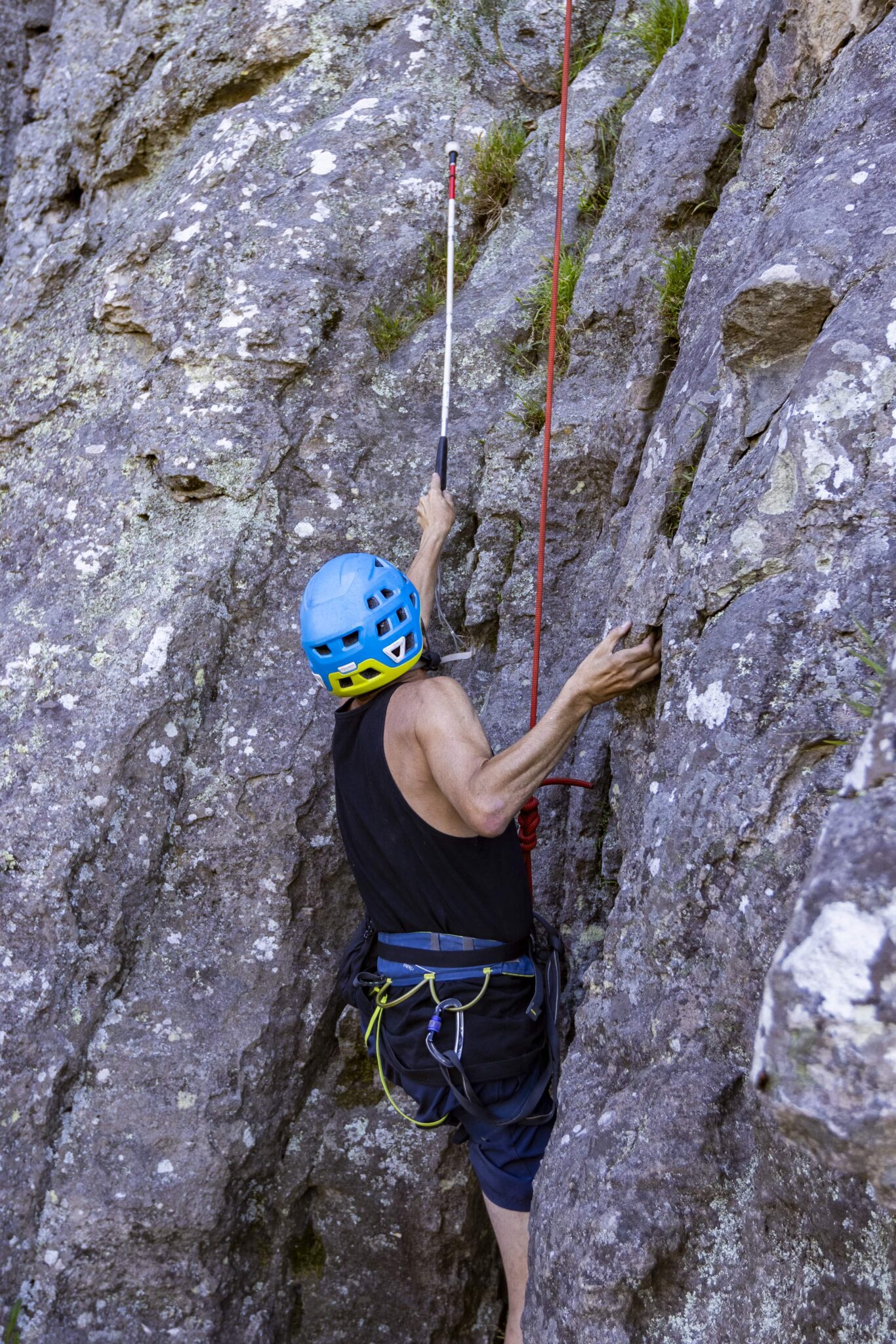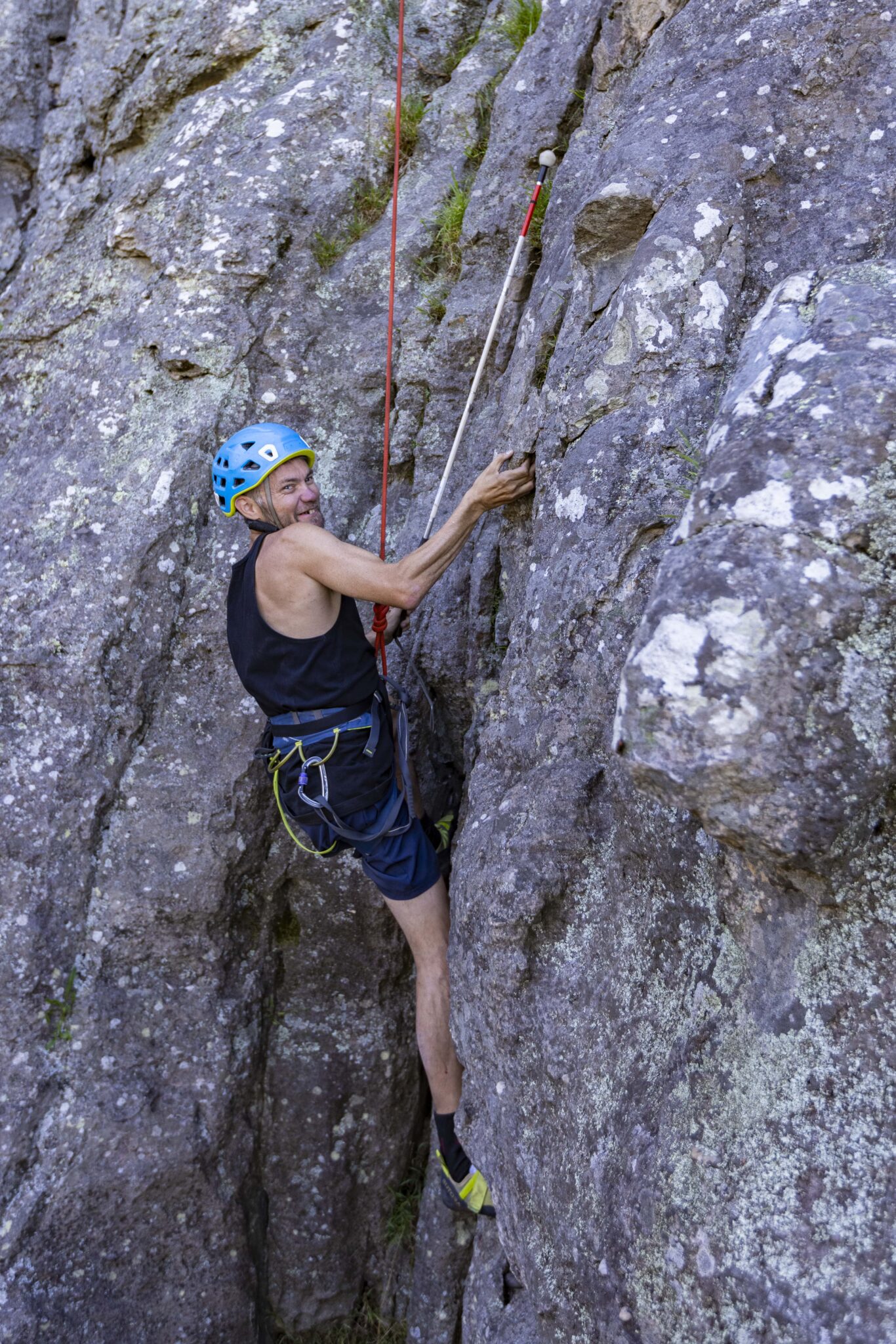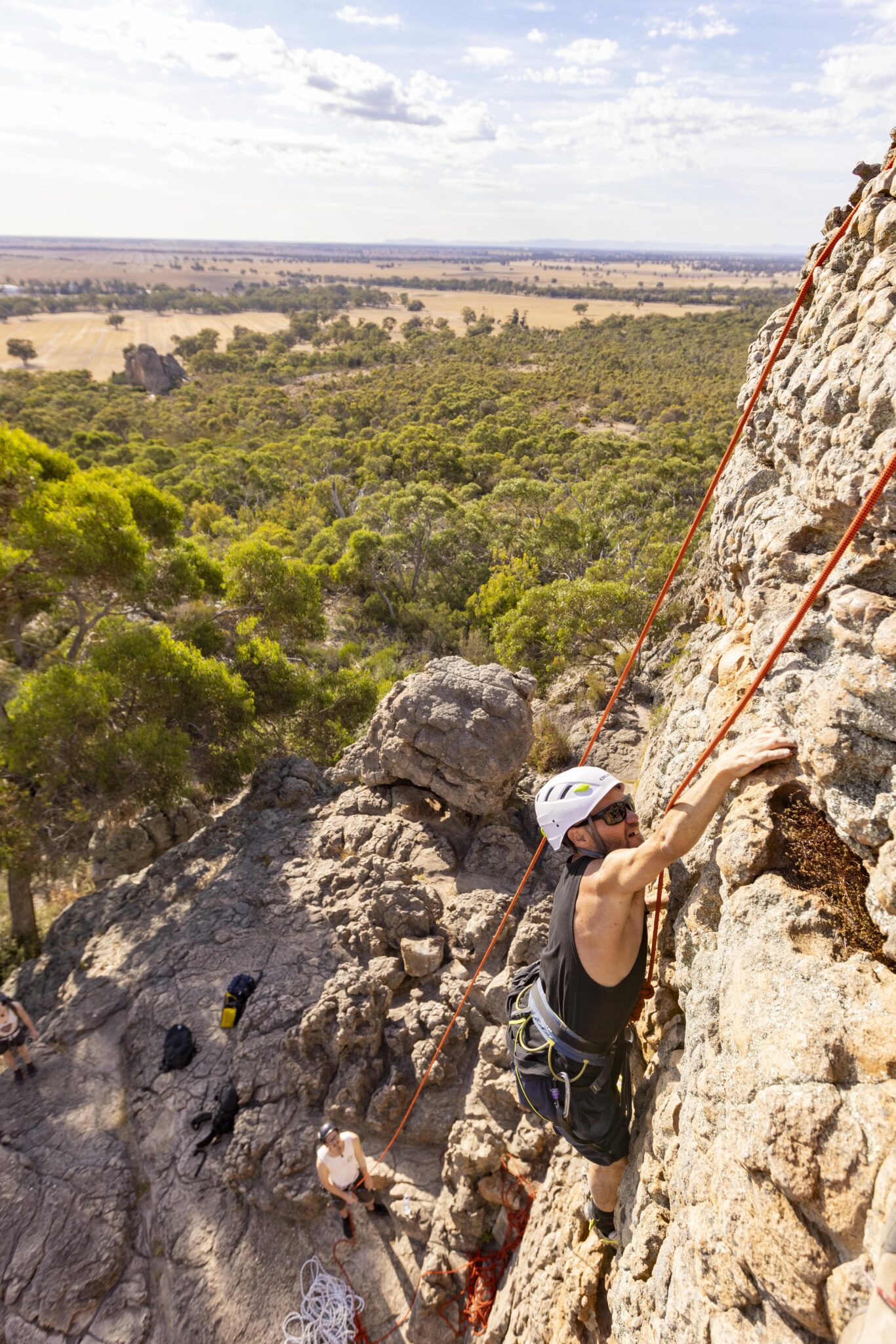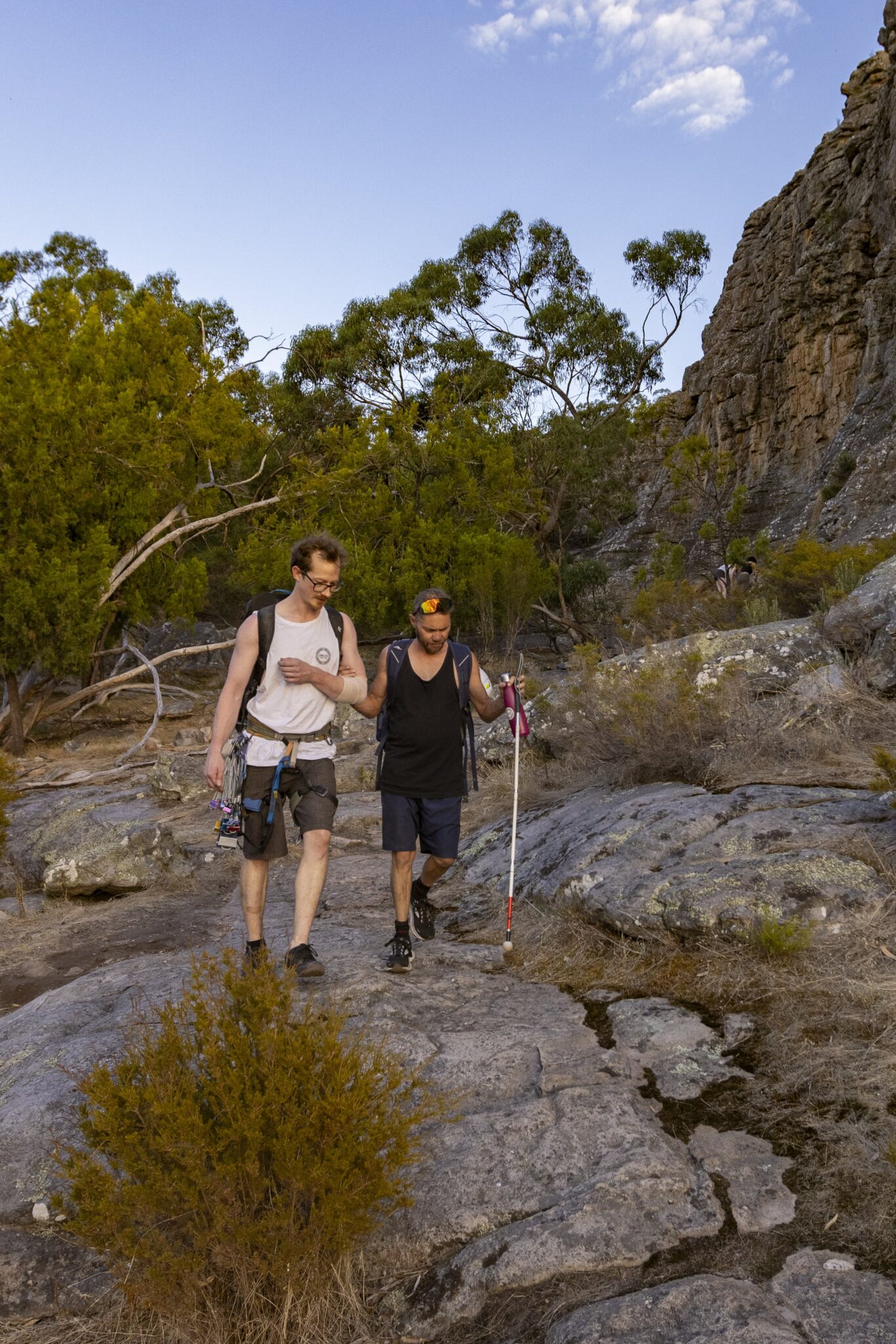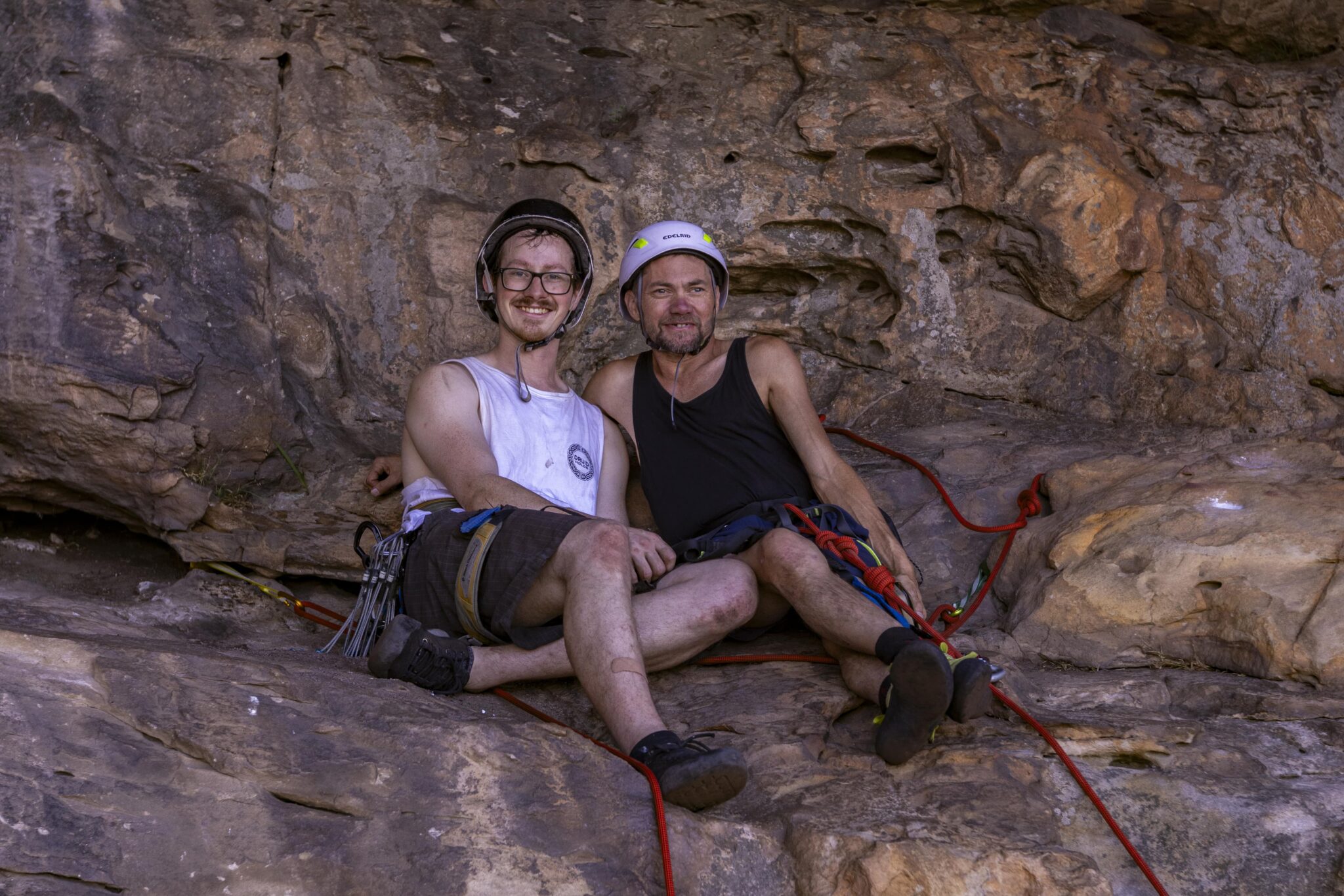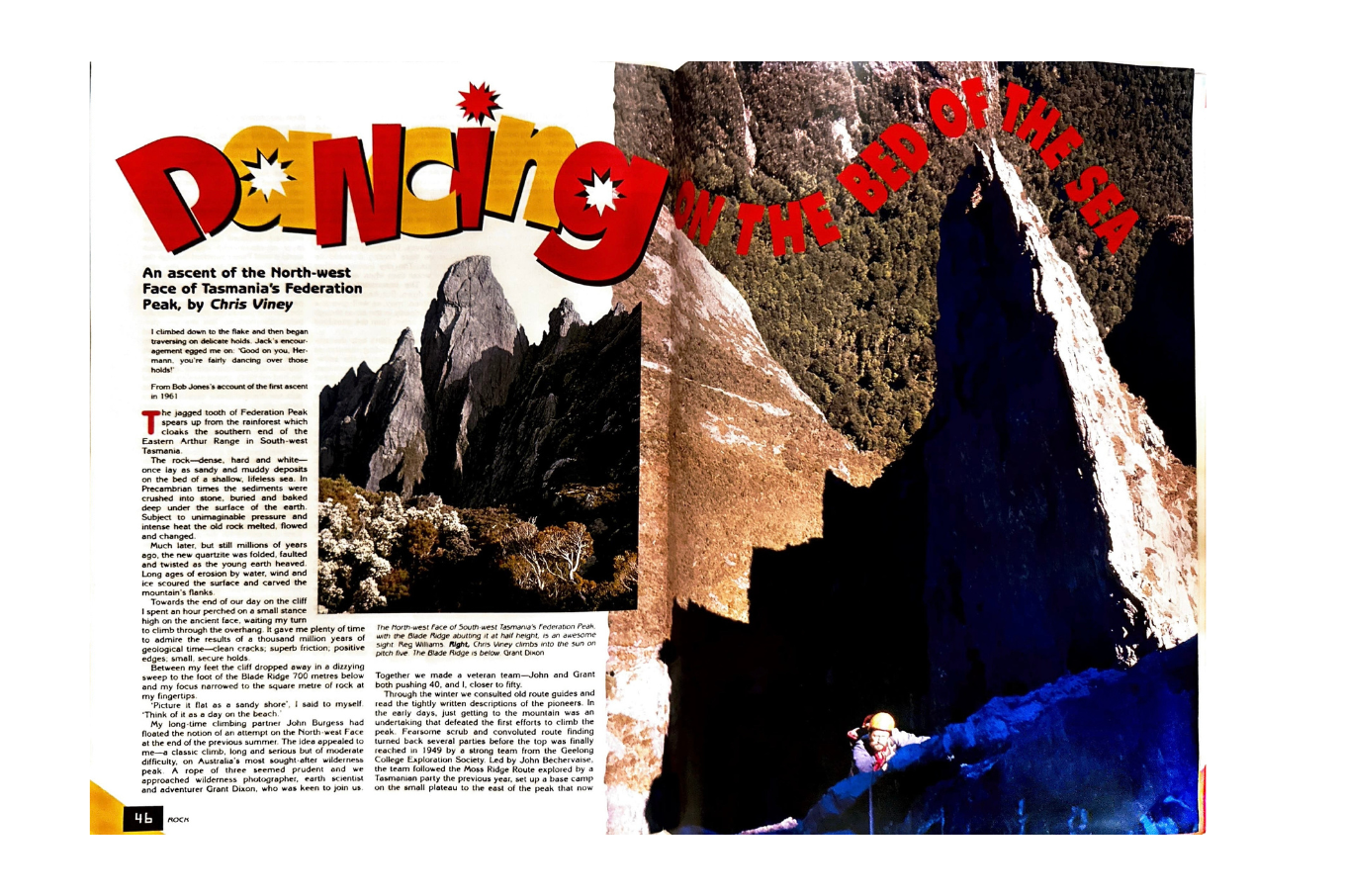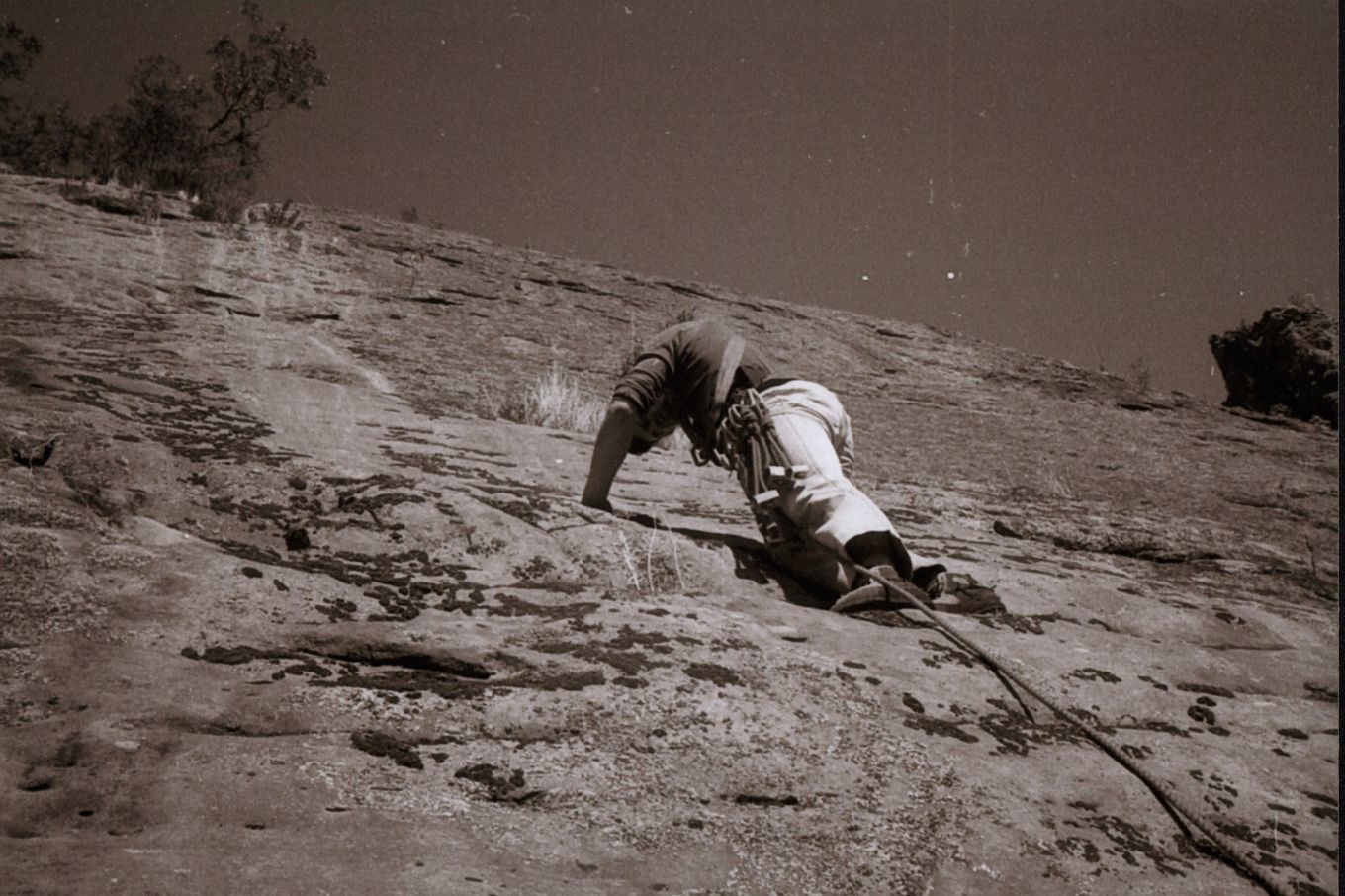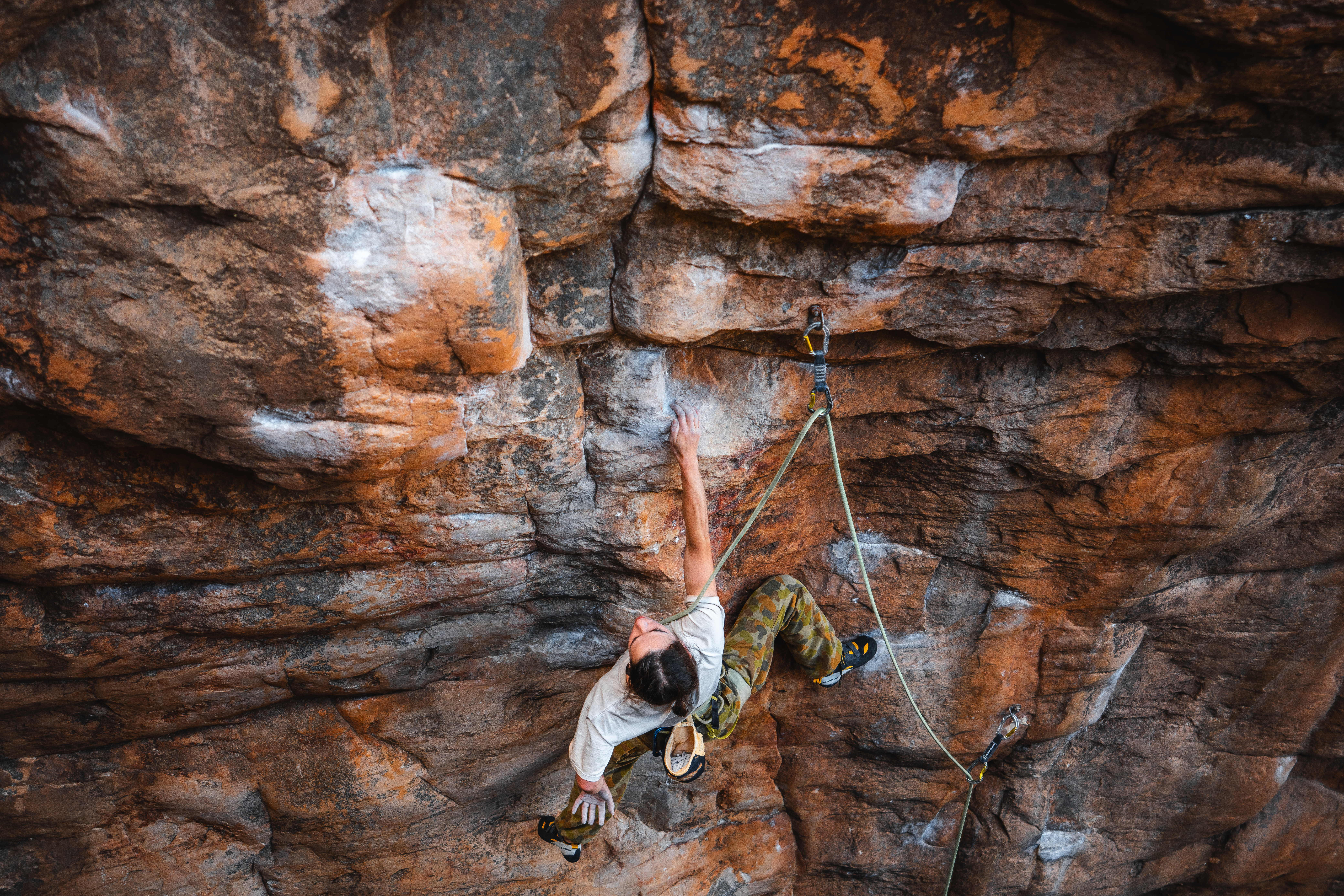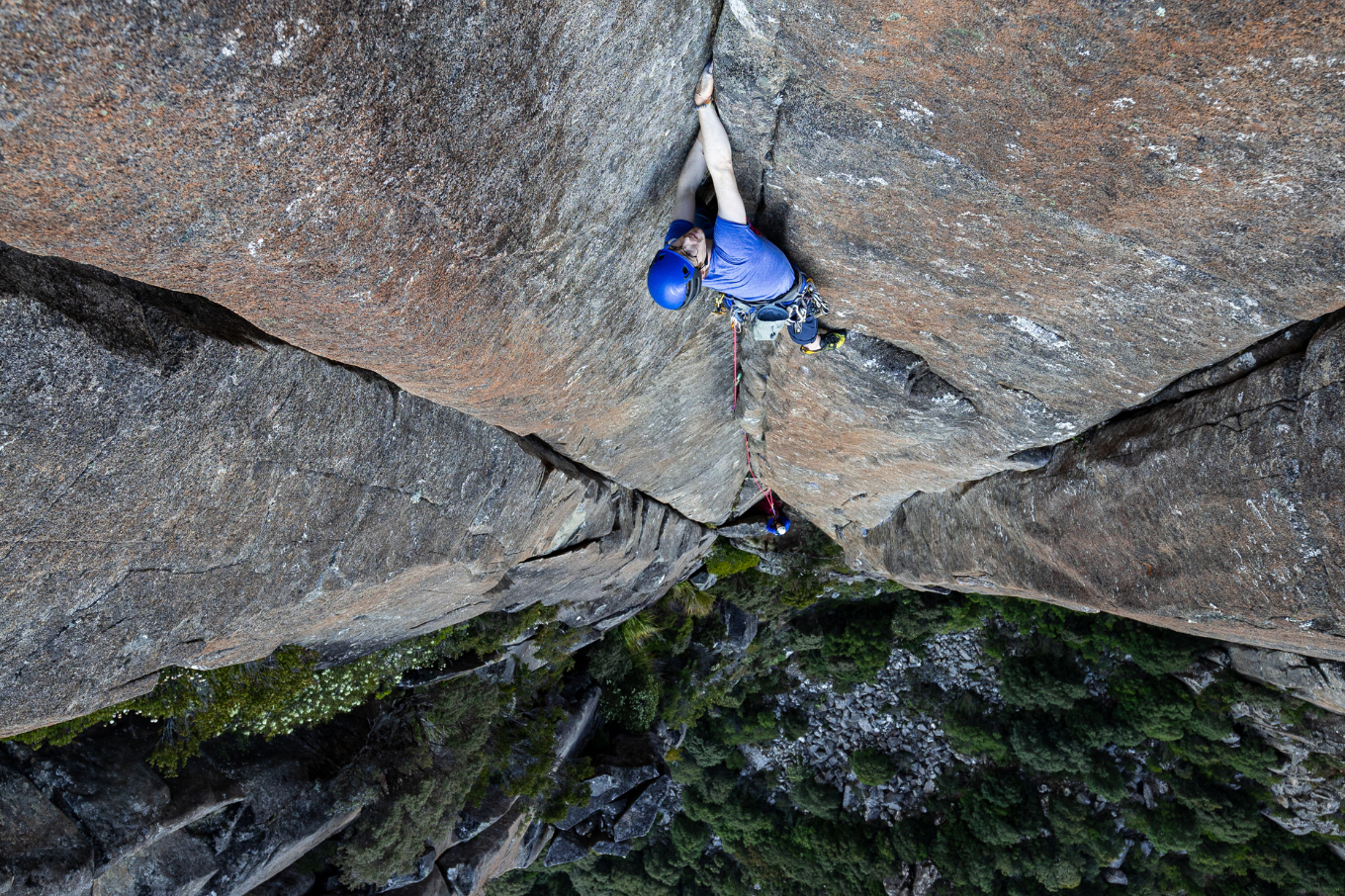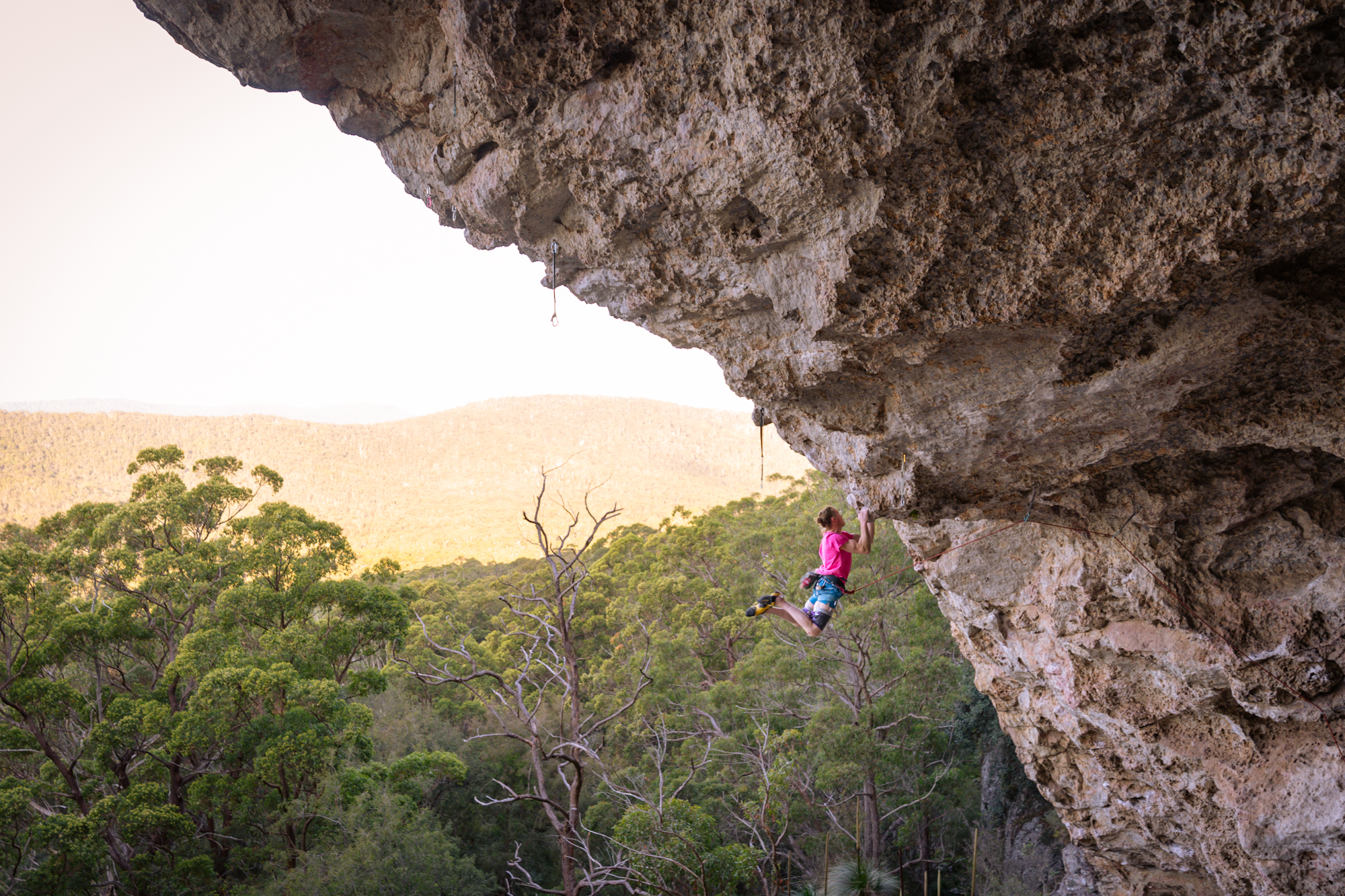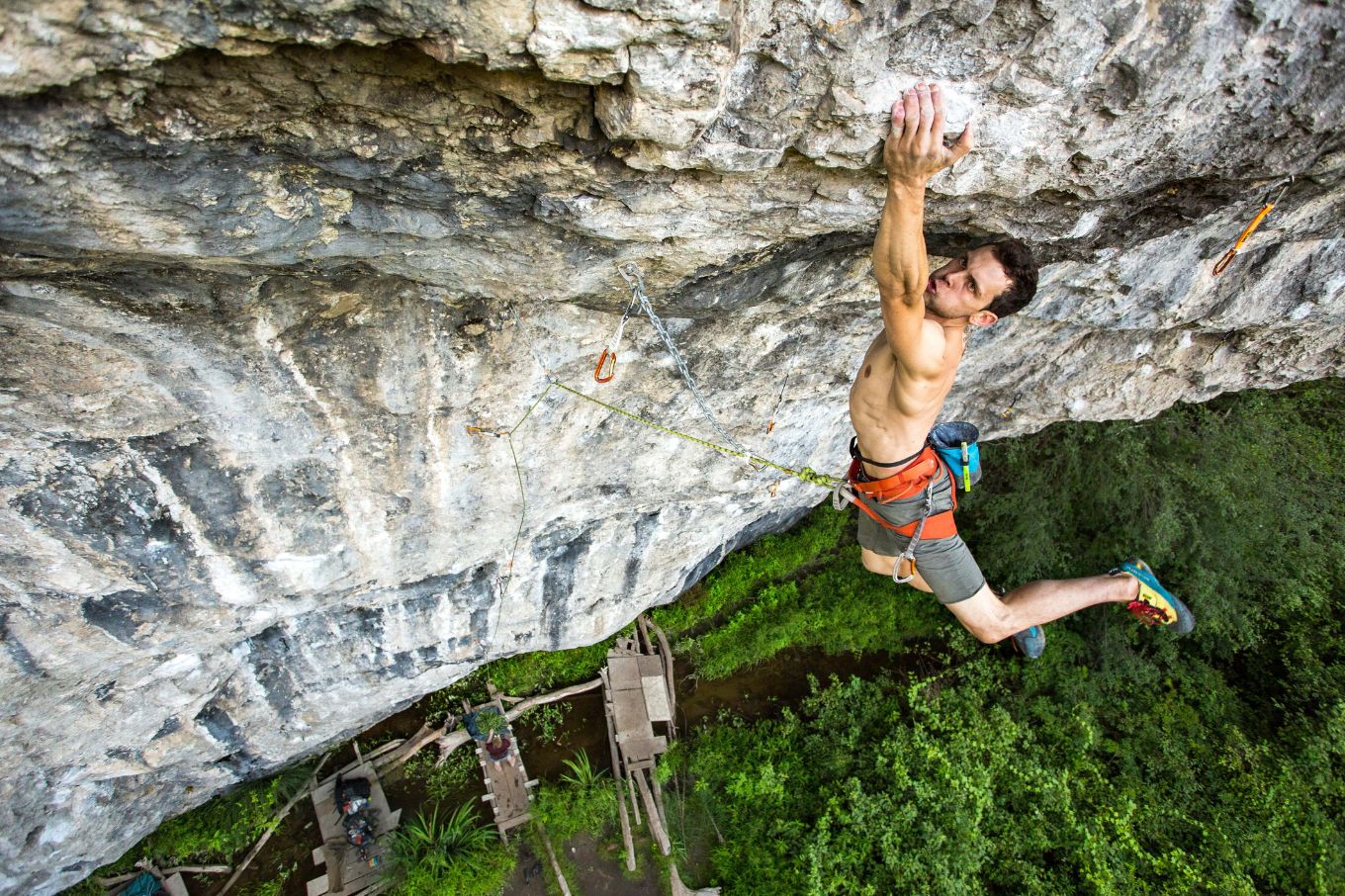Meet Jason Whiter: a vision-impaired para climber
(This story originally featured in Vertical Life #48)
Words: Claire Williams
Jason Whiter is a vision-impaired para climber who, alongside comp climbing, embarked on his first outdoor climb earlier this year, stepping out from the familiar walls of indoor climbing to face the heights of Mount Arapiles.
Claire first met Jason at Gravity Worx, a gym in Melbourne where he trains with his coach, Ben Dalby. They instantly clicked. Over conversations at the gym, and later at the crag, Claire got to know Jason’s story.
When we walked into the gym tonight, you mentioned the pink climb was still up. But when I think of a vision-impaired climber, I thought it would be more like climbing in the dark, can you describe what you experience?
I can sort of make it out a bit. Colours aren’t good if they look similar; they might just blend in. Browns and reds blend in and looking up I can’t make out if a hold is a jug, a pinch, or a sloper.
I was first diagnosed with Type 1 diabetes at the age of 11 which developed into more complications in my 20s. My left eye is completely damaged with no usable vision. My right eye is like looking through a pinhole on an average day; however, in bright light, it’s more like looking through baking paper.
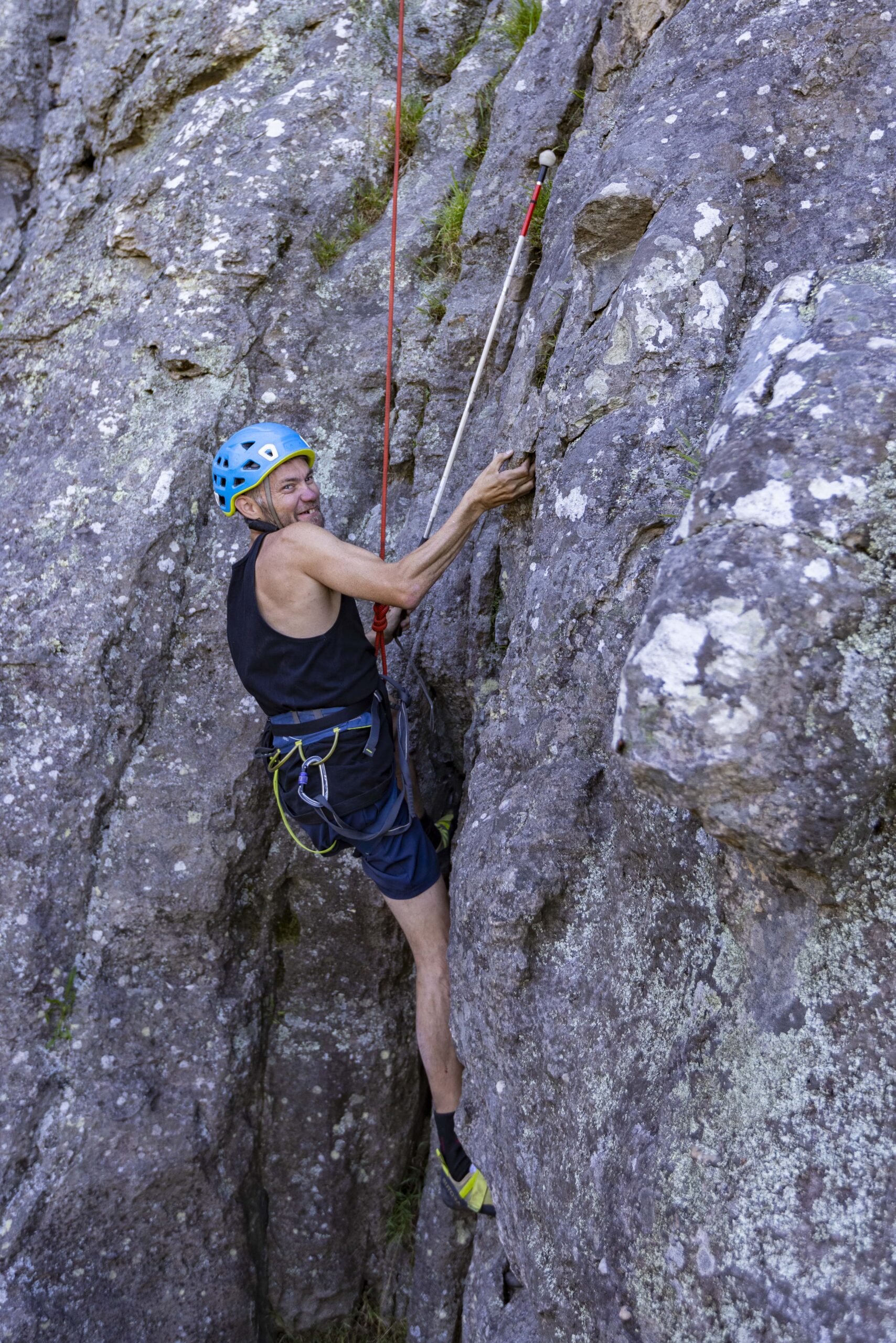
Oh, wow! So, when you’re about to hit a hold, you don’t know what you’re grabbing?
My hand might look like it’s over the hold, but it could be too far in front or too far behind because I don’t have depth perception. I have other complications from diabetes, including neurological problems. I can’t tell you where my feet or hands are. I know they’re floating around somewhere, but I can’t pinpoint them unless I’m looking at them. I also have some nerve damage in my limbs, meaning I don’t have the full range of touch like the average person.
What initially got you into climbing?
I took one of my PT clients to Gravity Worx last year. He was doing a six-week weight-loss challenge and I wanted to change up the program. During the session, I had a go at it and thought, okay, this is pretty fun. So, I brought him back a week later. From that point, I started looking into my options for competitions and found out there was paraclimbing with a blind division.

What made you want to try outdoor climbing?
I loved the temptation to try something new. I really love nature and camping, so I wanted to take it all in with the fresh air and views. Seeing other para climbers do it also inspired me. After I lost my sight, I stayed in the same career as a real estate agent, before becoming a personal trainer. I haven’t allowed it to stop me from pursuing the things I’ve wanted to do. It has challenges, obviously, but it hasn’t slowed me down too much.
Prior to climbing at Arapiles I asked you what you were most looking forward to and you said, “Getting to the top”. Having done it now, what did it feel like getting to the top?
Words can’t really explain that feeling. I felt a strong sense of achievement. Looking out and seeing the wheat fields, the colour contrast of the yellow with the blue of the sky, I felt very relaxed. It was a warm day but the rock was cool, there was a light breeze just brushing past. I enjoyed sitting up there listening to the birds. It gave me a feeling of peace. All my worries, troubles, and mile-long to-do list were down below me.

Up there, I felt a sense of calm that I hadn’t felt in forever.
Has outdoor climbing been what you expected?
No, it’s probably more than I expected. There’s a lot more preparation involved than I thought. I underestimated the hike-ins and hike-outs; that was quite challenging. Needing to be guided over the terrain was probably more challenging than the climbs themselves.
I did four outdoor climbs and an abseil where you guided me over the top of the cliff to the edge and I had to put my trust in you all. There was so much—the climbs were great and the abseil was really fun. I enjoyed each component of the day.

Having tried both now, what do you prefer: indoor or outdoor climbing?
They both have their positives. Outdoors it was easier to climb and a lot more fun. I’d like to do more outdoor climbing, but I think I still prefer indoor climbing as it’s a controlled and more accessible environment.
Having only begun climbing recently, you’ve already competed in quite a few climbing competitions, haven’t you?
I’ve participated in a bouldering competition, Lab Masters 2023, where I didn’t perform well—I fell off everything. Despite that, I thoroughly enjoyed my time on the mat. I’ve also competed in the Australian Oceanic Qualifiers last year and the NSW State Titles this year. Although I didn’t achieve any notable finishes, I faced tough competition, including a strong climber in a wheelchair. I only managed to outperform him because I was climbing an easier route. At the K2 Base Camp QLD State Titles this year, I placed 3rd.
I was honored to make it onto the Australian team for the Paraclimbing World Cup in Innsbruck, Austria, this year too. While I did not qualify for the finals, climbing on the main wall was a significant moment for me. Watching the Innsbruck World Cup the year before had inspired me to pursue competitive climbing, so being there was incredibly humbling.
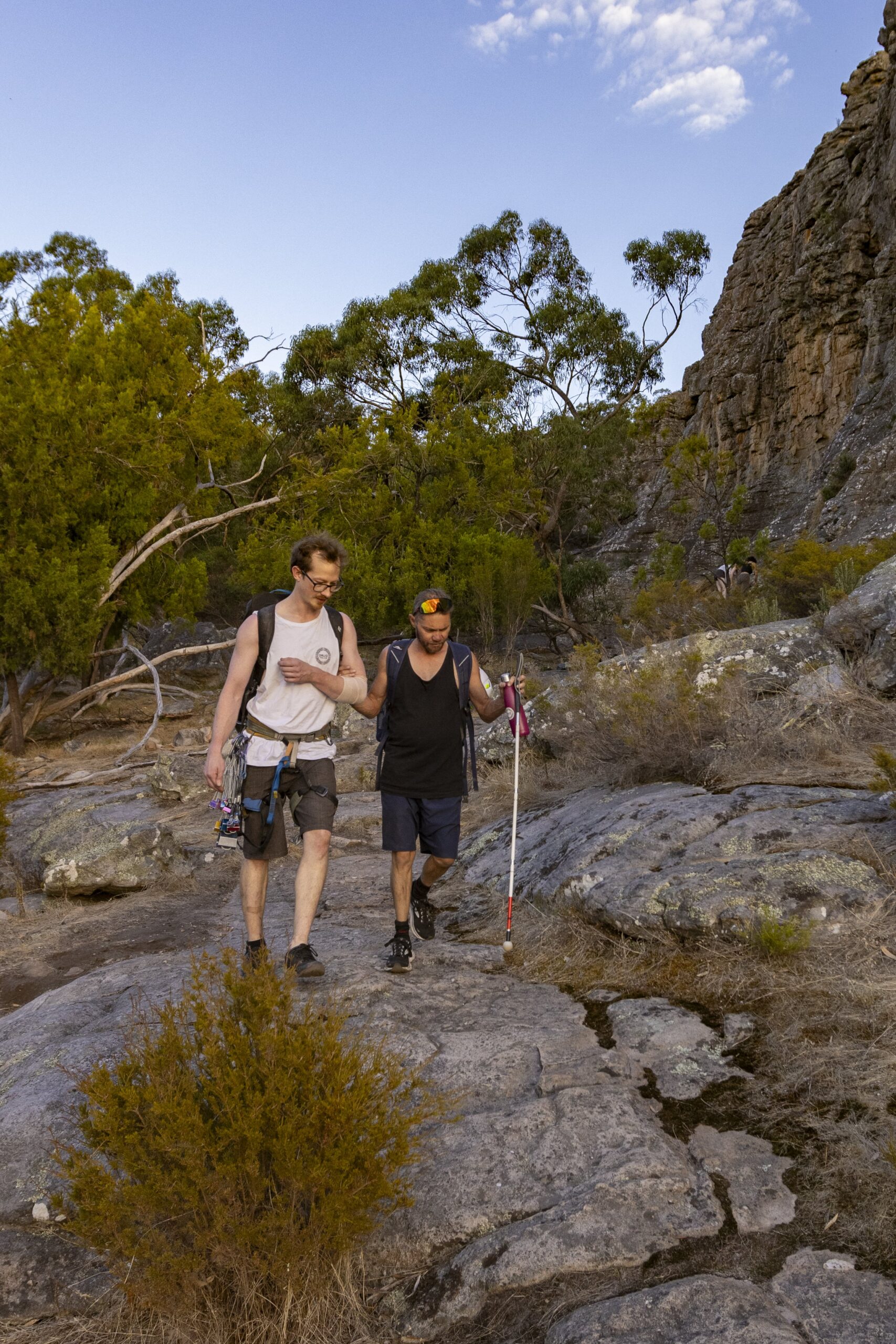
The announcement that paraclimbing will be included in the 2028 Olympics made me immensely proud to be part of such a historic moment.
Do you have any future goals in climbing?
It’s a privilege to have represented Australia, but for me, it’s about raising awareness around a sport that’s not well known in the para community, especially the blind community. It’s hard to find a sport when you’re vision-impaired, and it would be good to show the community here that I am doing it. I may not be great, but I can do it. I want to show people where it can actually take you. It’s a worldwide competition; the pathways are there.
How has climbing impacted your life?
It’s given me something to aspire to. It’s definitely changed the way my body feels. My chiropractor said he’s never seen my body more aligned. I’ve had some neurological improvements—I’m starting to feel more in my feet. My flexibility has improved a lot, and the positivity from the climbing community has helped me mentally. It has allowed me to escape my everyday chaos. When I am climbing, I am in that moment and not thinking about the next email I need to respond to.
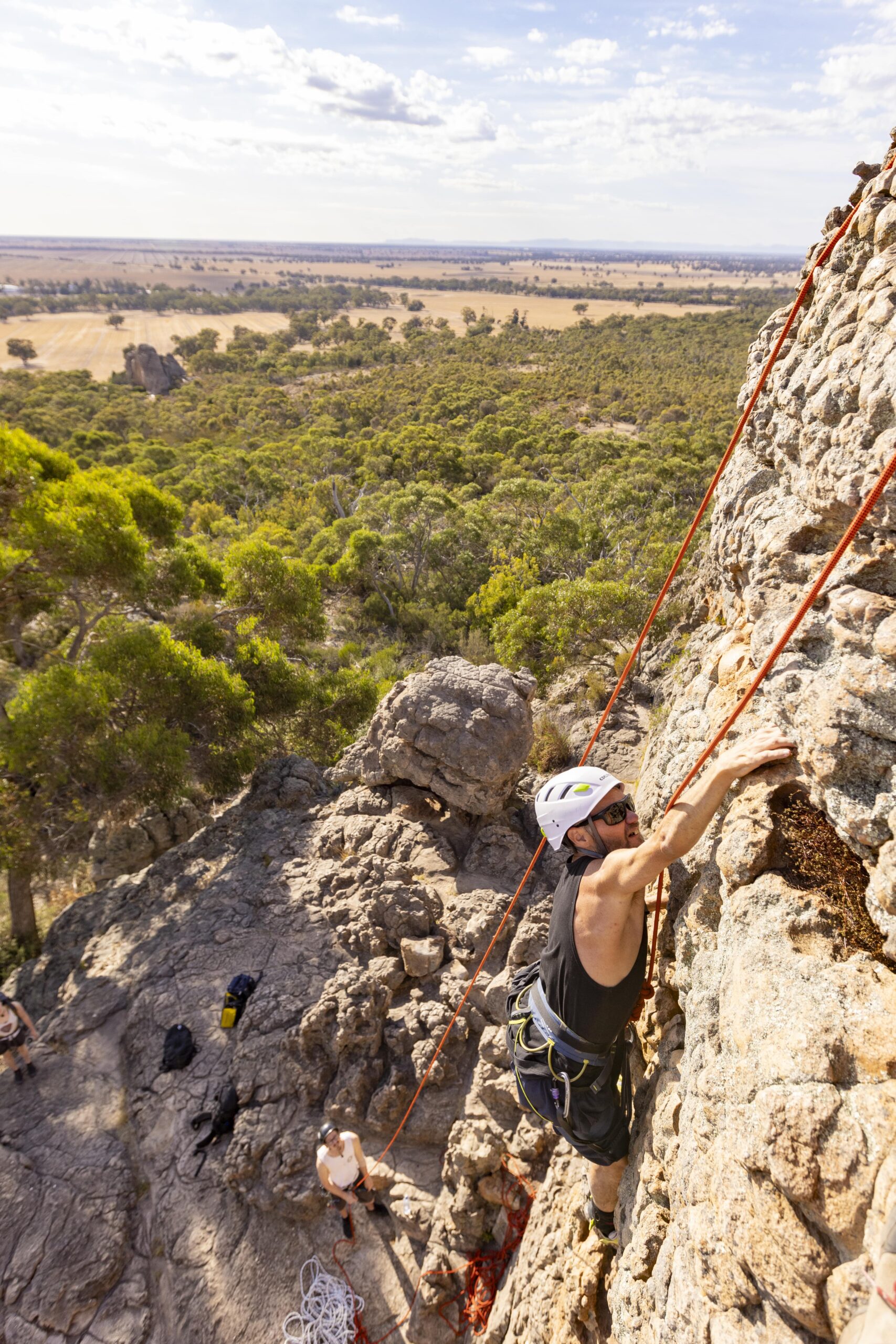
The climbing community has also been a blessing. In other sports I’ve experienced, the competitive side takes over and no one is supporting each other. With climbing it’s different—the people around you want you to do well, they don’t care what level you climb at because everyone has their own personal goals. It’s a positive environment.
What changes and growth have you noticed within yourself?
It’s tough to answer, but I think it’s given me the courage to take chances I may not have taken otherwise. It’s risky for me to get on a plane, healthwise the doctors don’t know how my body will react to the pressure and altitude, but I’m now taking those chances to pursue my climbing goals.

